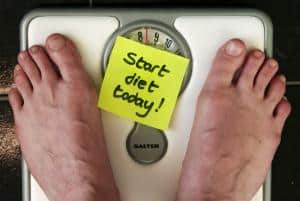If a friend came up to you and told you they had a really great way of losing weight and burning fat while still eating almost anything you wanted, you’d probably think they were out of their mind!
But despite how crazy this sounds, there is truth to this (and it is has been backed up by science).
Did you know you can follow a fasting diet plan, whereby you fast or calorie restrict just 2 days each week, and the effects and improvements it has on your body can be the same as if you were going to much greater extreme measures to lose weight (minus the blood, sweat and tears)?
And did you know that fasting is a natural proven way to lose weight, burn fat and improve your health?
Fasting the 5:2 way will decrease your risk to certain lifestyle diseases without the need for extreme measures such as:
- popping pills
- living off expensive shakes or meal replacement bars
- having to buy special products or supplements
- taking chemical or artificial products
- spending hours and hours in the gym doing harsh exercise workouts, OR
- any of the other crazy measures we have come to expect when ‘going on a diet’.
Fasting is not new; it has been practiced for centuries by different cultures for various different reasons.
The good news is unlike times of old, modern day fasting will not see you abstain from all food and drink, but rather you just need to decrease your calorie intake for a set period of time.
If you would like to lose weight and improve your health without having to pound the pavement for hours on end or live off diet pills, then join our 4-week challenge to ensure you have all you need to make your 5:2 fasting diet plan a success.
The Significance of Fasting Throughout History
Throughout history, fasting has been practiced as a way of cleansing the mind, body, and spirit, in order to prepare oneself to approach a deity or divine state.
In ancient times Hellenistic religions believed that the gods would reveal divine insights in visions and dreams after they had fasted and abstained from eating or drinking.
But we do not need to look to ancient times alone to see the positive cultural effects this way of living has had on people and their cultures. Many religions still practice fasting today believing the act of abstinence shows your commitment to your God and faith in your beliefs. It is also used as purification or cleansing or for penance for ‘sinning’.
Many of us will be familiar with the period of Ramadan which is practiced for a month by those of the Islam faith; during this period of time, they fast during daylight hours.
But there are other faiths and religions that have also believed in and followed different styles of fasting from Christians to Buddhists to Hindus to name just a few.
In non-religious settings fasting has been practiced as a way to express political or social views, usually as a gesture of solidarity or protest. You may be familiar with these famous historic events:
- In 1932 Mahatma Gandhi fasted in prison to atone for the violence of his followers against the British
- In the 1960’s Dick Gregory fasted for the rights of the American Indians, and
- In 1980 many Irish nationalists starved themselves to death in a Belfast prison in order to receive recognition for their Special Category Status.
Why fast in today’s modern world?

So why do people fast? What is involved with fasting for weight loss? And can the 5:2 Fasting Diet Plan work for you?
It wasn’t all that long ago that we had to work hard to produce and enjoy our food; many of us still farmed and worked the land; food wasn’t always available in large quantities; and so fasting was an everyday occurrence as people would often skip a meal or two as food was not so easy to come by and required more preparation than just taking it out of a box and zapping it in the microwave!
But for many of us, that way of living off the land is no more; most of us now live in cities and rather than farm we sit at computers; day in day out.
So the main reason why people adopt a fasting diet plan is for weight loss and to improve overall health.
Fasting the modern way does not require you to fast for long periods of time; nor is there a need to neglect your body of nutrition in order to reach your weight and health goals.
Fasting in this manner is not about starvation but is about calorie restriction, done through following an easy diet plan.
So why do we need to fast?
Today, food is available everywhere we look and this alone is a big contributor to becoming overweight or obese as it is so easy to over consume; this coupled with the fact that food is also relatively cheap has made for a culture, particularly in western societies whereby we are eating and drinking from the moment we rise to when we go to bed; often not even waiting to feel hunger; but just putting food or high calorie drinks into our mouths (with little thought for the consequences).
This has caused an over-consumption of calories; where we are ingesting more energy than the body is able to use or burn off. This coupled with a more sedentary lifestyle has seen our weight increase significantly and so, in turn, many lifestyle diseases have become prolific.
Fasting has proven a great way to give our bodies a rest after overindulging, and to help it to use up reserves of energy, often in the form of excess fat carried around the belly region.
Fasting helps to kick start the fat burning process and helps us achieve a healthier waistline and live a healthier lifestyle.
If you have found yourself in this position, fasting for weight loss, fat loss or general health can be a great thing to get yourself into… particularly if everything else has gotten you nowhere.
Who else has achieved great results from Intermittent Fasting?
When you think of Hugh Jackman (besides thinking HOT!), you instantly think of health and extreme fitness.
In order to achieve the super lean and extremely defined muscular shape required for his character in the movie Wolverine, Jackman turned to Intermittent Fasting in order for him to burn off the excess body fat he was carrying.
The reason for his choice was because he needed to eat in a certain way that was healthy whilst still allowing him to endure such grueling workouts and long days on set without putting his health at risk.
Before training for the role of Wolverine Hugh Jackman would have been considered fit and healthy by anyone’s definition but in order to achieve the super lean and super defined body to play this character, he needed to burn fat and build muscle.
I bet many of you are not aware such results can be achieved even when fasting. But Jackman is not the only celebrity who has achieved great results from intermittent fasting. Some of these include:
- Alex Salmond
- Phillip Schofield
- Benedict Cumberbatch
- Jennifer Lopez
- Beyonce
- Christy Turlington
- Liv Tyler
- Miranda Kerr
- Jennifer Aniston, and
- Ben Affleck
are all said to have tried it.
If you would like to lose weight and improve your health without having to pound the pavement for hours on end or live off diet pills, then join our 4-week challenge to ensure you have all you need to make fasting a success.
The Health Benefits of Fasting – As backed up by Science
There are different types of fasting and they all have different health benefits as outlined further below, but the fasting that we advocate is a type of intermittent fasting.
We have found that eating the 5:2 way following the fasting diet plan allows you to live a ‘normal’ life without having to spend hundreds of dollars on things you don’t need, do extreme workouts or give up entire food groups.
So we have found that it has been easily adopted into our life and makes for sustainable living. whilst losing weight, burning fat and feeling better about yourself.
What is Intermittent Fasting?
Intermittent fasting is not the same style of fasting that we have written about above; it does not follow any methods that have been used and practiced by various religions and cultures, but rather is a way of eating (not starvation) that allows you to eat fewer calories over a certain period of time and then follow your regular eating pattern the remaining hours or days of the week.
Intermittent fasting hit the fitness and diet scene a number of years ago now and is often practiced by people trying to strip fat from their body relatively quickly and this is probably one of the biggest benefits of following a fasting diet. Many diets help you lose weight, but not a lot help you lose fat.
Following this style of eating plan sees you enjoying your regular meals by feasting on a healthy nutritious diet followed by ‘fasting’ or calorie restricted meals over a certain period of time in order to use up energy and fat reserves.
How Does Fasting work?
Fasting in this manner switches the body from using up glucose that is traveling around in your blood stream to using fat stores often accumulated around your belly and waistline area to provide energy throughout the day.
For some, the idea of fasting may initially seem like torture or only something that only the desperate and crazy would subscribe to but no matter how crazy it may seem at first; the benefits are well documented and are worth it.
Scientific Studies
Much research has been conducted and many more studies and clinical trials are underway at present all around the world as results from intermittent fasting and fasting diets like 5:2 diet are showing positive health benefits.
Like many people who have thought about trying fasting, you may not realize just how much research has gone into a fasting style of eating, or even if you were aware of the research you may not be aware of what fields of study researchers are looking into.
Some of the ongoing areas of studies and their benefits are outlined below:
- Fasting helps the body burn through fat cells more effectively which helps with an overall weight loss – research has shown that an increase in the production of human growth hormone (HGH) helps you to burn more fat whilst also helping with anti-aging and other areas of health and fitness
- Some studies show a positive effect on insulin sensitivity allowing your body to process carbohydrates better (especially simple carbohydrates such as sugar)
- Improving cognitive functioning and enhance your mood (people feel they have more control over their lives when they fast)
- Detoxifying the body – cleansing it of toxins, chemicals, and other impurities
- Decreasing risk of cardiovascular diseases – studies show those who fast have a better lipid profile, with a decrease in LDL cholesterol
- A decrease in your risk of Cancer (as currently shown through studies on mice)
- Reduced oxidative stress – decrease in the growth of free radicals in the cells. These free radicals can contribute to damage to cellular proteins, lipids and the like associated with aging and disease
- Those periods of not eating can help give your digestive system a rest which is great if you have poor digestion or can’t digest some food groups very well
- Helps to regulate hormones such as leptin and ghrelin levels so your body can readjust the “hunger” signals it sends you.
Other benefits reported include:
- Lowering risk of diabetes
- Protection against effects of Parkinson’s and Alzheimer’s
- Improving chronic skin conditions such as eczema and psoriasis
- Improving immune system functioning
- Longer lifespan and reduced morbidity.
Some current studies underway include:
- At the University of Sydney, by Associate Professor Amanda Salis has conducted trials on intermittent fasting and has found that a fasting diet plan has emotional benefits such as finding other ways of coping with stress, helping to break unhealthy habits, and helping you pick up the flavors in a healthy, nutritious meal.
- At the Nightingale Centre and Genesis Prevention Centre at the University Hospital of South Manchester in the UK Michelle Harvie and Anthony Howell found that a diet using fasting as energy restriction to control weight is potentially a breast cancer prevention strategy.
The Weight Loss Benefits of Fasting
Fasting helps you lose weight but more importantly, it helps you burn fat!
According to fasting for weight loss advocates like Dr. Fuhrman, M.D., who is a well-known and internationally recognized nutritional researcher and expert, states that the body is designed to fast, as is evidenced when we fast at night whilst we sleep.
He states that Fasting allows the body to remove toxins more effectively. If you stop eating for a day or more, your body enters a state of ketosis, which means that it has depleted all of the available carbohydrates to burn, so it has to start burning fat.
Fuhrman says that it is within the fat cells that our bodies store many toxins that were absorbed from the environment.
Building on this you can see a correlation that until we lose some of this fat we continue to carry these toxins around with us; which may impede our health.
He also tells us that it takes approximately 6 to 8 hours for your body to metabolize all of the glycogen stores, so you need to fast for longer periods than that this in order for you to start using the fat stored by the body for energy.
How quickly you will lose weight from fasting depends on your body and metabolism, but people have been getting good results. Women who stick to the 5:2 intermittent fasting for weight loss should lose about 1lb or more per week, while men tend to lose a bit more.
Naturally, your overall success depends on how you eat on the non-fasting days as well some other lifestyle factors such as exercise, stress, emotional and hormonal levels along with how much rest or sleep one gets; to just name just a few.
Other benefits to the fasting
Overall, one of the best things about a fasting diet plan is that it can help you improve your overall eating habits and awareness around food; which sets you up for improved health and therefore a better life.
I’m sure you may have tried other diets in the past and when subscribing to a certain diet or way of eating, you don’t want to ruin all your hard work and good healthy eating by having a binge on junk food or calorie laden high fat, high sugar foods the very next day, especially upon completing one of your intermittent fasting days.
Who wants to 500 calories /600 calories a couple of days a week only to only go and make up those calories by eating three times as much as you are meant to, by then overloading or over-consuming? – No one!
If you find structure a lot easier to follow when dieting, fasting provides for this – you can set a particular time or times that you will eat, and then not eat until the next planned meal. Even if you have trouble with binge eating and have never had an established eating pattern before, fasting can certainly help you cement in place a healthy pattern of eating.
If you are interested in trying intermittent fasting then you can join our challenge now to be given all the tools, resources and support you need to create the habit of eating this way.
It is important to ensure you eat sensibly on your low-calorie intake days – coffee for breakfast and making up the rest of your calories with pizza for dinner isn’t going to help; slow releasing carbohydrates such as non-starchy vegetables, nuts, nut butters, oats, fruits and sweet potatoes mixed with a lean protein such as fish or chicken is essential to getting you through those low-calorie days.
Drinks such as herbal teas and soda water will also help fill any gap you feel like you might be missing out on.
On your ‘normal’ days, keep up the healthy eating with lean proteins, veggies, fruit, good fats and slow release carbohydrates. But you can still enjoy your treats, a burger or slice of pizza with a beer from time to time.
Different Types of Fast Diets
Absolute Fast
The absolute fast is abstinence from all foods and liquids for a certain period of time. This fast usually only lasts one to three days, as the body can’t go longer than that without fluids. Absolute fasts are usually done for religious reasons and are not healthy in the long run, as your body needs water to function optimally and flush out toxins. It is also not recommended for people who are not of good health.
Liquid Fast
A liquid fast only limits solid foods. This means the person who fasts can still drink fluids and even broths. It is possible to keep this type of fast up for longer than three days, but it can also be dangerous to deprive the body of necessary nutrients for too long. Without the necessary nutrients, you may experience dizziness, fatigue, have hair loss, get gallstones and even end up with heart damage. If your body doesn’t get the fiber it needs you will also become constipated on top of that and without the needed protein, you can start losing muscle instead of fat.
Partial Fast
During a partial fast, you only limit certain foods or substances. In religion, it may mean abstaining from alcohol, meat or sexual pleasures. Most short-term diets are partial fasts and not effective in the long run if they don’t become part of a new lifestyle. This is the reason why many people find intermittent fasting (which is also a partial fast) much easier to stick to.
Alternate Day Fast
The Alternate Day fast involves eating normally one day, then limiting your calorie intake to less than 600 calories the next day. Surprisingly it works very well and it doesn’t matter what you eat on the days when you don’t fast. As long as you stick to the fast days, your risk of cardiovascular diseases due to obesity is greatly reduced, no matter whether you are following a high- or low-fat diet on your normal days.
Intermittent Fasting
Intermittent fasting for weight loss involves repeatedly fasting for longer time frames than your typical daily eating schedule which includes breakfast, lunch, and dinner. There are many variations to intermittent fasting, with some people skipping breakfast and others dinner. Some people fast every second day, others every third day, once a week or even only once a month. The most popular intermittent fasting diets are the Alternate Day Fasting and the 5:2 Fasting Diet plan.
5:2 Fasting Diet
The 5:2 diet is not a real fast.
There is no starvation involved here!
The 5:2 fasting diet plan involves eating what you want (within reason) for 5 days a week and restricting your diet to 500 calories for women or 600 calories for men on two days of the week.; preferably non-consecutive days; such as fasting or calorie restricting on Monday and Thursday each week.
Many people find this fast easier to stick to because you have less fasting days than with the alternate day fast and the days you fast are flexible and can work to an individual’s schedule.
So if you do shift work, partake in certain social activities or events and prefer not to fast on those days you can switch it up to suit you. The only requisite is to fast 2 days each week (ideally non-consecutively) to ensure maximum results from the program.
Eating 500/600 calories on your fasting day enables you to still enjoy a light breakfast, lunch, and dinner if you wish to, or you can eat a hearty breakfast and lunch and lighter meal or snack for dinner. The choice is yours.
Getting the Most Out of your Fasting Diet Plan
No matter which fast you follow it has been well documented that you need to follow the diet plan for a number of weeks before you will start to see any real results.
As with most diets or changes to your diet and lifestyle it can take your body between three and six weeks for it to become accustomed to an intermittent fasting style of eating but, like any diet, if you can hold out during that period your body will become accustomed to its new eating lifestyle, and you will find it gets easier as your hunger levels decrease and your results and waistline improves.
So to get the best results and ensure that you kick butt with eating the 5:2 way, it’s best to follow a plan.
Like many other diets, fasting takes some work to get used to, but once you are in the swing of things, you will start to notice the difference in your body size, the way you look and feel.
Not only will you have lost weight, dropped inches increased your energy levels but you will have developed better eating habits and awareness around food; which helps you sustain this eating and lifestyle change for longer periods than many other diets that people stop after only a couple of weeks because their diet and lives have become so restricted by them – But not with the 5:2 fasting diet plan.
If you want to lose weight, improve your health and feel better about yourself without having to deprive yourself, living off shakes or supplements, then join our 4-week 5:2 fasting diet plan challenge now, where you will be supported every step of the way.
Click below for more details and to access the guide instantly…


















Look forward to learning more about the 5:2 diet and its health benefits.
Simple and easy ideas for a couch potato like myself.
Want to feel alive again. Want to clear my mind and colon of the toxic waste that has built up as a result my own carelessness.
Don’t put your trust in the big food industries… They have robbed our food of all its nutritional value and take delight in seeing us sick as we skirt around feeling less than human.
Get back to whole foods, not processed foods.
I’m looking forward to changing my mindset. Where’s granny with her good old fashioned food for thought.
Get to your local fruit and veg shop. Stop buying GMF and stop supporting a chain of companies that only want your dollars… healing, wellness and health for a long and sustainable future… After all I’m expected to work well past 70 so why not get on board with the 5:2 diet, as quality of life is my new best friend!
Thanks Donna
I couldn’t agree more.
If you haven’t already, make sure that you check out the 5:2 intermittent fasting Quick Start Guide to get you started, and let us know how you go.
cheers
Sarah
I followed the 5:2 plan for 10 or 12 weeks, initially with little problem. During the last 3 or 4 weeks, I found that the day following a fast day I felt weak and a little depressed, even after eating. I have read several articles now that suggest that fasting has a different effect on women than on men and that the effect is detrimental. Are there different rules for fasting men and women?
Hi Janet
Thanks for your question and bringing this to our attention. You may recall in the Quick Start Guide that it is noted that during the first couple of weeks you may experience some feelings of being lightheaded, or the onset of a few headaches; some people may even feel nauseous. Typically after the second week these side efforts ease off as your body gets more used to this process and new way of eating. To avoid this from happening please make sure you are drinking enough water and staying well hydrated on fasting days (as well as ‘normal’ days).
The fasting diet intermittent fasting can affect each of us differently becasue when it comes to our bodies it is not just what we are eating that affects how well we feel and how well we function. It can be offer factors such as our emotional state, stress levels, whether we have other health conditions; our hormone levels etc etc. but this aside we know there are tens of thousands of people achieving success with the 5:2diet lifestyle.
In regards to their being different rules for men and women; the only differences lies in the fact that men can eat 600 calories on their fast day where as women should aim for about 500 calories. I would suggest seeing yuor doctor to see if there is perhaps anything else going on such as diabetes, low blood pressure or other erratic hormonal levels that are causing you to feel down and depressed.
All the best
Sarah